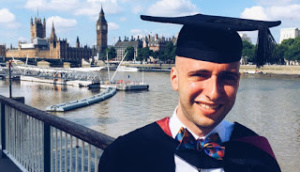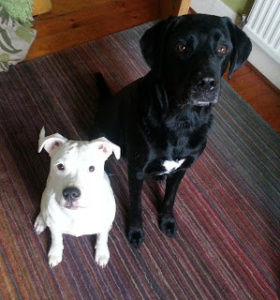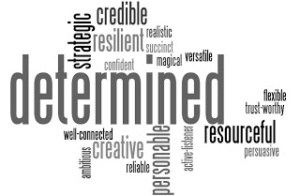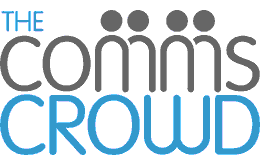Five ways to get your dream job in the era of artificial intelligence
Time to read: 2 minutes

Asah Adolphe joined us for the month of July 2020 as an intern, and many of the team were involved in giving her some experience of different aspects of our work. Peter Springett, our senior editor, volunteered to guide Asah through writing and editing a blog. Below you can read the result.
Could a machine really determine whether you get the job or not? Most likely yes, but here are some tips on how to improve your chances.
Applying for your dream job is a daunting process. What makes it even more nerve-wracking is the influence that technology has on the interviewing process.
A lot of importance has been placed on artificial intelligence in particular, as many companies use it to identify the best candidates for the job.
Being interviewed by an algorithm may be the new norm. However traditional face-to-face interviews are still prominent. Whatever interview process you may be facing, just follow these simple steps. You got this!
1. Search for a job listing
First, you need to devote your time to the job-hunting process by using a variety of resources. Be proactive by handing out your CV, e-mailing companies, looking through job advertisements by using apps such as LinkedIn. Treat your job search as a full-time responsibility. Maximise your options!
When looking for job vacancies you should consider all your skills and experiences. Your achievements will determine what jobs you will apply for.
2. Modify your CV
Now that you have seen job posts that have interested you it is time to revamp your CV, if you have not started one yet then writing one is a must. Remember that this is an important document as the focal point is to sell yourself. Master the art of selling yourself by demonstrating your achievements and explaining what lessons you have learned – it would also be helpful to include what you can offer a company if they choose to hire you.
3. Practice typical interview questions
Next, browse the internet for typical interview questions to make sure you are prepared so you have concise yet detailed answers that show you are a suitable candidate. As a suggestion (to maximise confidence), you could ask a friend or family member to test you on some interview questions so they can give you some advice or feedback on your interview technique. However, if they are unavailable, practicing in front of a mirror will do.
Practice! Practice! Practice! As the saying goes practice makes perfect!
4. Presentable/smart clothing
Whether you are being interviewed in person or your interview is going to be conducted by AI, appropriate clothing is essential as your aim should be to make a good first impression. Remember, first impressions count!
There is no need to break the bank and go above and beyond to buy expensive clothes, after all the most important thing is sophistication and professionalism. Even with AI interviews you could still be penalised if you are wearing inappropriate clothing, as a human will look at your interview at some point.
5. Be aware of who you are and what your story is
Have realistic expectations! Be mindful of your skills and experiences as this determines how far this will get you, although be open to new opportunities to expand your horizons. Do not be deterred by lack of experiences. Nevertheless, if your fortunate enough to get your dream job be conscious that any job has its highs and lows, there will be parts of it that you will enjoy and parts of it that you may dislike.
And finally, be mindful that employers are looking for employees who are enthusiastic so keep that passion and drive!
Profiling Sam Howard, founder of The Comms Crowd
Asah Adolphe joined us for the month of July 2020 as an intern, and many of the team were involved in giving her some experience of different aspects of our work. Sandra Vogel, head of tech content and working journalist, volunteered to guide Asah through conducting and writing up an interview. This involves several different skills, including researching your subject, working out interview questions that will get you the results you think you need, and crafting an article out of what you learn. Below you can read the result – Asah’s interview with our founder Sam Howard.
It has been eight years since Sam Howard started The Comms Crowd, and it has never been more of a success than it is today. She discloses all in this interview from her favourite procrastination habits to her greatest career achievements and even admits how it was never her initial career plan to work in PR.
Earlier on in Sam’s professional journey she did not consider that PR would be her future career path and even resented the suggestion when her boss recommended it to her. Nevertheless, we can now understand that the software CEO had the right idea as his encouragement led her into the right direction, as she is now the head of a thriving comms agency.
As the creator of a ‘new breed of communications agency’, Sam’s main responsibilities are to ensure that the company is healthy, financially balanced and that that their clients are happy as she emphasises, ‘good enough is never ever good enough.’ Her determined mindset filtrated through every response she made to the questions I asked and accentuated why not only the company but her professional career has been such a triumph.
When asked about the key to developing an efficient team she explained that it is vital that each member is articulate, maintains a technical understanding and exhibits an interest in their role as this all contributes to the smooth sailing of the business. After all, an enthusiastic team builds the foundation for a successful, prosperous organisation.
In any professional field every individual is guaranteed to face hurdles and experience failure, Sam even acknowledged that to fail ‘is how you learn to become better at what you do’ and I could not agree more. When I queried the award-winning writer on the topic of failure, she confessed that she had failed on numerous occasions, which is understandable when you have twenty plus years’ experience in B2B tech PR. She recalled one ‘unpleasant’ experience which happened to be when she was relatively new to the industry and was approached with a new role in the city that she was not prepared for at that point in her career. She expressed it was an honour to be chosen for the job, so she completely ignored the skill level it actually required and ended up ‘leaping in’ and being devastatingly inadequate. Although, she added that headhunting is common in the industry, so it is all too tempting to take a role that you are not yet qualified to do.
It is fair to say that failure can open the door to many successes, Sam’s professional experiences reinforce this as she has accomplished a lot within her time in the industry. However, her greatest achievement she claimed was her having the incentive to start the Comms Crowd. In 2012 traditional work environments made it mandatory for employees to work in offices for long hours, and even getting a 4-day week or working one day a week from home was still frowned upon. Sam decided to go against this model entirely and set up a fully virtual agency with no office at all (and none of the overheads so no extortionate agency rates). Now in the midst of a pandemic, the model is finally recognised as the way to go, but Sam has been making it a success as she has ‘pulled-off’ managing a dynamic, efficient, and professional team that operates from various locations across the country.
The determination and passion that built this tech comms agency stemmed from Sam’s desire to collaborate and work with people she respected. She recognised from early on that it was unfair of the PR industry to have impractical expectations of its mainly female work force, therefore her aim was to embrace these expectations and create a flexible supportive environment, as she stresses that ‘your personal life and your children and your family and your dogs are as important as work and anyone who acts as if they’re not is kidding themselves.’ Clearly, staying true to these values is what stimulates and inspires her drive.
Sam was certainly not reluctant in shedding some light on the challenges she has come across in her career. She revealed, that when working in PR ‘it is vital to learn how to adapt as every client is unique and getting it spot-on with a client can always be tricky’. However, this does not seem to deter Sam and her team from reaching their goal and ultimately impressing their clients. In her view the most rewarding element in her role is witnessing her team blossom and seeing how her team manages to have such a positive impact on their clients.
The Chief Storytelling Officer went on to describe her typical day, and I have to admit it is very productive considering she works from home but it happens to be a routine that she has evolved over the eight years of running The Crowd. Intriguingly she gets to pick her own working hours which begins at 1pm in the afternoon until 7:30pm in the evening and she clarified that between those hours ‘she is in deep concentration.’ However, she promptly starts her day at 8:30am when most people are commuting to work so she can get an early start on her domestic tasks, then she goes outdoors to take her dogs for a walk and after that she would normally get in some exercise, such as Pilates swimming or cycling; as a result of COVID-19 her exercise routine has undergone some changes, unfortunately as we have all experienced this pandemic has affected our lives in many ways. Nevertheless, this has not deterred Sam as her routine remains proactive.
Maintaining a productive and successful work-life along with a satisfying balanced personal life can be stressful, especially when being the executive of a company, but Sam has the perfect yet quirky coping mechanism that helps her which she shares as ‘very calming.’ *Drum roll* it is…creating spreadsheets! Yes! colourful, bright, multicoloured spreadsheets is what relaxes her from a demanding day at work. After all, everyone needs a stress reliever.
I realised prior to conducting this interview that Sam is very ardent and committed in encouraging the next generation of talent. I asked her for any advice she could offer any young person considering a career in the field of PR or the media industry in general. She responded that individuals that wished to undertake a career path into Media and PR must have a ‘strong work ethic’ along with determination and an understanding that the industry is fast paced, she also stated that the person must take into consideration their skills and mindset; as the industry ‘ is competitive and changes like the landscape’. This interview with Sam Howard has been enlightening and informative with a hue of humour. Sam has shared inner and concise mental abilities it takes to be successful in the Media and PR world. She has shown us what it takes to be a part of the industry and the positive yet resilient, tenacious attitude one must have to succeed.
A PR degree – is it REALLY worth it?

Time to read: 2 minutes
As our junior’s three year PR degree draws to an end and the student loan looms large, she asks: Was it really worth it?
Ultimately only time will tell (although I would
like to think YES) as I am yet to graduate and secure a job in the industry.
However, I can still look back on my time studying PR at UAL and pick out the positves and negatives.
Firstly, I do think studying in London brings such an advantage to any student, particularly a PR student, as your University is located on the door step of some of the biggest PR agencies in the UK. Additionally, my Uni has fantastic connections with a variety of PR professionals, with completely differing backgrounds.
Consequently, every week we received a guest lecture from somebody different,
who would provide us with an insight of their experience in the PR industry and
offer advice to those wanting to take a similar path. For me this has been one
of the highlights of my PR degree experience. The talks have opened my eyes to the different paths, sectors and opportunities working in the industry has to offer.
The opportunity the university provides to being exposed to different PR professionals gives you the ability to be proactive and make connections. In
my case, if it wasn’t for Sam being one of my guest lecturers in my second year, I wouldn’t have landed an internship at the tech PR agency Hotwire in the summer of 2017. This then led to me landing my role as a junior for The Comms Crowd.
However, if I am being completely honest, if someone was to say to me do you
think a PR degree is worth it, I would struggle to definitely say yes. This is simply because I feel as though the duration of three years is far too long for the work that you do. In addition to this, obviously this differs depending on where you study, however my course has been primarily theory based. It has been interesting to unveil the theories and history behind PR, although I feel it could be argued whether it is necessary to have this knowledge to succeed in the PR industry.
So although I have obtained a great deal from studying a PR degree, I do feel three years is too long and nor do I believe it is essential if you want to go into the industry. In my experience, PR internships are not too hard to come across, once you
have gained the necessary experience from carrying them out. If you are hard
working, passionate and approachable it is possible to secure a role in PR without a PR degree.
The biggest mistake junior PRs can make

Time to read: 1 minute
I was recently interviewed for MK’s award winning PR blog. I taught Marcel at Westminster Uni where Ihe graduated with a distinction and he was also our junior for a year. In his #4PRQs series he asks a range of industry types the same four questions. The one I found most interesting was:
What is the biggest mistake of junior PR people you employ, and how can it be fixed?
And this is my expanded answer:The biggest mistake even the best junior makes, is trying to appear you are on it when you are not… saying you understand what you are doing when you don’t, not quite. I get the motivation – need to look like you are on it, don’t want to ask daft questions.
But we know coming into an agency life from an academic background is a huge shock: not least the speed in which things move:
- Agencies are always very fast, very busy and er slightly stressed and everyone apart from the new junior knows exactly what they are doing.
- The level of multi-tasking expected is unprecedented, it’s not unusual for a junior to sit across five or six accounts or even more.
- Being cc’d on every mail on every account sounds great right? you finally get to see what’s really going on. But believe me. it’s a high price to pay for wading through 200 mails a day, and where are you supposed to put them when you’ve read them? Are they all important??
So it’s no wonder juniors are over-whelmed from day one. But without complete understanding of what you are doing and why, even ‘simple’ tasks like updating media lists, or sourcing twitter feed content goes awry as the junior lacks the confidence to speak up and clarify any questions, resulting in frustration and lack of faith all around. Much better to fess up at the beginning and claim ignorance, especially in my sectors where the subject matter is deep. I mean how is a junior supposed to be all over AI, blockchain, machine learning, crypto currencies – etc? We really don’t expect you to get it straight away anyway, so you just speak up and ask those ‘stupid questions’.
What makes a standout PR candidate?
Time to read: 1 minute
Sam Howard survives another year of crash-course interviews and passes on her observations for what makes a standout PR candidate.
In addition to tending the Comms Crowd, I have an enjoyable side hustle working as associate lecturer leading the Professional Employability module for Westminster Uni. Recently we conducted externally-invigilated panel interviews with every student for a hypothetical intern or junior role depending on their experience in PR, advertising, marketing events etc. There were two panels each panel interviewed 30 students in a day – intense. So you get a very succinct view of qualities that work in interview: Here were the ones that worked best for me:
IMMERSED – Those that could clearly demonstrate a calling for the industry, enjoyed discussing campaigns and liked watching how stories played out in the media. These candidates were able to demonstrate a very proactive choice of careers, almost a vocation and we loved talking to these guys, they were one of us already.
ENGAGED – Those that liked engaging with us were open and seemed to enjoy the process, This really stands you in good stead when so many candidates seem reluctant to even be in the room and the interviewer feels more like a dentist trying desperately to extract information, than a would be employer, .
TUNED IN – Finally those that demonstrated a (quiet) resolve, an innate understanding they had this one moment to convince us that they had the attitude, the attributes, the experience and skills to easily fit in a team and capably do a good job. Those that were successful substantiated passion with knowledge, balanced confidence with credibility, openness with professionalism and demonstrated a positive rationale.They did not get distracted by their nerves, let the occasion overwhelm them, nor lose their way in an effort to become our NBFs, but just resolved to take that opportunity to show us the best of themselves with every answer. In short they had FOCUS.
But if these are not key qualities for you the great comfort of course is most all PR firms don’t rely on interview alone and applicants are given the opportunity to match the talk with the walk, demonstrating their skills and abilities in a variety of tests from proof-reading, pitching, aptitude tests, copy writing etc – and then it of course becomes a very level playing field. Hurrah!
Tips for PR Internship Interviews
Time to read: 2 minutes
Sam Howard interviewed 40 PR undergrads in a day, here’s her top tips for standing out from the crowd.

pick me! oh please pick me!
This is what got me, it’s not until you interview 40 potential interns back to back do you realise how important it is to make a mark and stand out, for the right reasons.
Below my top ten tips for delivering a compelling interview:
1) Dress up not down. You’re a student, I know what students look like, show me what you look like as a young professional, help me imagine you in my world. Lads put on a suit, girls tie back the hair, easy on the make-up, everybody make sure the shoes compliment the look and are clean, Oh and take your coat off!
2) Bring in a portfolio and refer to it. Clips, references, college work, certificates etc.
3) Don’t be worried about nerves. We expect you to be nervous and can see through them, just focus on coherent answers that stack up.
4) Be able to answer the question ‘what do we get if we hire you?’ In three words that are true to the core of you. Even if you’re not asked it, have a handle on your personal brand, what it is, what you stand for.
5) If you are studying PR be able to talk about the industry, our issues, our successes, where we are heading, your PR super hero etc.
6) Don’t offer up a single adjective unless you have a story that backs it up. Don’t feel obliged to provide us with skills or qualities that you are unlikely to have at this early stage of your career. If we’re looking for a new CEO we would have advertised for one.
7) Be comfortable with your more humble achievements. The most convincing candidates were those that talked about everyday PR duties, how tricky it was to get coverage when there was no news, to create 10 tweets a day for a fish and chip shop, to get journalists to talk to you – at least that way we know you know what you are letting yourself in for.
8) Don’t be too eager to please, ‘I don’t care where I work who I work for what I do’ isn’t actually that compelling. Moderate your desire to learn with a view of where you’d like to end up.
9) The ability to demonstrate you can own and learn from mistakes is a key character strength not weakness. Be able to be reflective, think about things that have not gone well that were actually down to you not someone else. Why was that, and what did you learn from it?
10) Have a story lined up that lets us see the passion in you the one that lights you up! It doesn’t have to be work related, just something where we can see your natural energy and pride. Good luck, and enjoy the experience!
On PR work experience and where to get it
Time to read: 2 minutes
When it comms to forging a career in comms, Sam Howard suggests mixing it up a little can be as valid as going all out for a pure malt career.

the bloody mary was mine…
With employees now trusted more than CEOs, the end user increasingly seen as the key influencer and media channels publishing every type of content to every type of platform, being good, even very good at just PR isn’t necessarily going to get you very far.When you look at the people behind the current brand success stories, there is increasingly more evidence to substantiate my long held belief that being a Jack of many trades, is the surest way to become Master of your own career.
Talk to industry recruiters and the dream hires are those that that have deep dive domain expertise (hopefully that will never go out of fashion) but combined with wide ranging skills across a full range of comms channels. This means for those starting out, any work experience that gives exposure to any one of the multitude of disciplines you need to affect behavioral change – is one worth having. It matters not whether marketing or PR, social or traditional, event or content – you will gain invaluable experience and become more valuable as a result.
Not convinced? Think the straight arrow approach is still the best way to go? Following the logic that if you intern at Webber you could become its CEO by the time you’re 27 and ¾? Well I guess you could, but think of it this way – if your dream job is to be head of PR for at Giorgio Armani do you actually want to intern there? Really?
Surely you’d not prefer to wobble off on your tender Bambi career legs to a few other pastures first and having journalists throw the phone down on you for being base incompetent when Giorgio isn’t watching? ie somewhere, anywhere else?
My advice is to learn your skills and make your mistakes elsewhere. For example say you want to be in fashion PR: Work on a shop floor, work in customer service, set up a fashion savvy blog , throw a charity catwalk show, do PR for a local store, then go agency side work on some high street and online brands, go in house see what couture looks like from the inside and then knock on his villa door when you know the industry inside and out and back to front, know the people in it, how to create the advocates, silence the competitors and convert the detractors, how to get them talking, and most importantly – shopping.
Then knock on Mr Armani’s door then, and say, “Well I doubt if you can afford me, but if you wan to take your PR to the next level, here I am.”
No learning experience is wasted, get out there, get learning.
Ten tips for securing a PR internship
Time to read: 4 minutes
Sam Howard on one of her pet subjects: Internships are a contentious issue. Pay them? We are getting better at this but if the intern’s work isn’t billable, then where does the funding come from? Don’t pay them and risk being branded as a slave trader? Auction them? Surely not, but they do go for £3k a pop at a Tory Fundraiser. That can’t be right can it, jobs for the boys and all that?

furry hats – hardly ever a good idea
Over the years I’ve hired my fair share of interns. I like to do it, feels good to give someone a break, they seem to enjoy it, and it gives me so much genuine pleasure to watch my protégés go on to bigger and better things. Now, I work with the Taylor Bennett Foundation coaching its interns and also with USC Annenberg, where I head up the post grad London internship programme. This batch of placements began about a month ago and I’m happy to report that without exception the students are delighted with their learning experience and thriving under the guardianship and care of their sponsoring companies.So in this post I’m steering clear of the politics and just passing on my advice for getting on that first rung of the PR ladder, I hope it’s helpful.
1) CV building: It seems in the US there is a strong culture for CV building which I’m not sure we’ve quite caught up with here. Most of my US group’s CVs already boasted not one but several unpaid relevant internships as well as 100s of hours of community service. This demonstrated not only a basic understanding of what PR is in practice but a really strong work ethic. Doing something looks a lot better than doing nothing and doing something for somebody else for free is even better.
2) CV cleaning: This goes for any CV, not just when you are starting out, so do avoid the marketing schpeak there is no need to ‘big up’ achievements. Explain what your actual role was, rather than align your glory to the company as a whole, we don’t really expect juniors to have created global brands, but it’s a real bonus if we know you know how to put a tracker report together. Be bold, brave and honest in your CV. Us PRs do not believe the hype.
3) CV polishing: We want our interns to be able to read, write, spell, have great attention to detail and a good eye for presentation. Use your two page CV to show you are a master of all those trades. Make it work hard for you, put in hyperlinks to your work, your references, your social media profiles.
4) Sort out your social media presence: to me this is more important than the CV. The CV you crafted in isolation, the social media profile is a living breathing organism. Get yourself on LinkedIn build your connections and join your groups and get some recommendations up there as soon as you are able. As for Twitter, follow your favourite bloggers, journalists, brands and companies you would like to work for. Use Twitter to pass on latest trends and tips from the professionals retweet and reply. Same goes for Facebook, but make sure your privacy settings are where you want them.
5) Sector specific: Most of my US group not only knew that they wanted to make a career out of PR but also what sector they wanted and already had some industry grounding to underscore that. On the whole this seemed to work very well. If you are starting out, look to build your experience in pieces, want to work in fashion PR? Get a Saturday job in a high street store, organize a charity cat walk show in your college, represent a local independent store for free, don’t be despondent that you can’t get an internship at Gucci from day one, lead up to it. Therefore the flip side is if you have little or no relevant experience just yet, then you should keep your remit wide open, see each opportunity as one to learn.
6) Agency v in-house: Most of my group wanted to work agency side as they believed the faster pace would give them a more intense exposure. Again I would agree with this, although I would say the mid size and smaller agencies are often much more receptive to giving an intern a good home. Going in house seems to take longer to clear, and also you need to be sure that there is enough actual PR work for you to do, so be clear on the job description if it’s a start up or a few man crew. Be objective, a great brand name might have global recognition, but a smaller agency might give you more responsibility. Do your research, find your specialists, PRWeek can be a good place to start.
7) Timescales: Even with high calibre students and a decent address book it took some time to secure good opportunities. About half the opportunities were secured through some, albeit tenuous, link with the company. I found one internship through a friend’s wife’s bridesmaid’s then boyfriend, who didn’t even work there anymore! But actually it isn’t a case of jobs for the boys here, use social media as your slave to form connections. LinkedIn became my new best friend. While Twitter and Facebook both elicited responses in minutes when email and phone did not. Be prepared to approach at least 10 maybe 20 agencies depending on sector (and certainly not the ten biggest) before you can get to interview stage. I would also look to secure your internship a good six to eight weeks before you actually want to start. An ideal internship should be between one to three months. Anything less and I’m not sure you can learn that much, anything more should at least be paid.
8) Who to send the CV to? Whoever it is you ’know’ is the best answer, they at least will tell you who it should really go to or better still forward it for you, make sure your accompanying mail is intelligent relevant and polite. Don’t be afraid to phone up to find out who to send it to and if it’s a smaller agency do be prepared to really pitch yourself on the phone, you never know who is on the other end.
9) Payment: I’m not getting into this one but it seems the norm is to reimburse travel and lunch expenses. Some agencies do pay a minimum wage but they seem to be in a minority.
10) Interviews: Do take ‘em seriously, if you don’t want this job there are plenty of others that do. Now, I know I sound like your mum here but bear with me, dress the part, clean your shoes, wash your hair and arrive on time. It’s absolutely fine to be nervous but try and be positive too. Bring proof of your skills, written work, clips, references. Demonstrate company, sector and issue knowledge, show you are passionate about our world, prepared to do the admin but hungry for more responsibility. Answer questions honestly and ask strong questions. Enthuse and smile, the person interviewing you may well be the one who will be mentoring you so let them know up front it’s going to be a rewarding experience.
Determined to be in PR? That’s handy
Time to read: 1 minute
Sam Howard asked a question of the UK Technology Journalists and PR Group on LinkedIn – what makes a great PR? One word answers only.

At the time I wrote this I’d had 41 answers from presumably a random selection of PRs. Having turned freelance only weeks ago I have some time on my hands so I tidied it up a bit and here’s a word cloud of how it looked…
If you add to ‘determined’ ‘resilient’ and ‘resourceful’ you’re looking at about a third of the vote. Seems we are just as well-suited to being long distance runners, a mountain climbers, swimming the channel or something else equally draining. ‘Strategic’ always a good one, gets a double name check, as does ‘personable’ and ‘creativity’, my own guilty pleasure.
Not sure about ‘magical’ myself, but I guess if you are the rest of it is easy.
But the one for me is ‘credible’. To be credible in front of your clients, your journalists, your team and your management generates trust, mutual respect and a sustainable reputation. After 16 years in this industry, my integrity, if not my ego is just about intact. Doesn’t mean I was ever the most popular girl in the room, and I was certainly an acquired taste among our clients, some of which we thought it best if I never met. But, as I used to whimper when I’d lock myself in the bathroom, “I’m not paid to be popular”.
Actually once you let go of the vague hope of ever being popular, it is quite liberating. Give it a go if you haven’t already.

